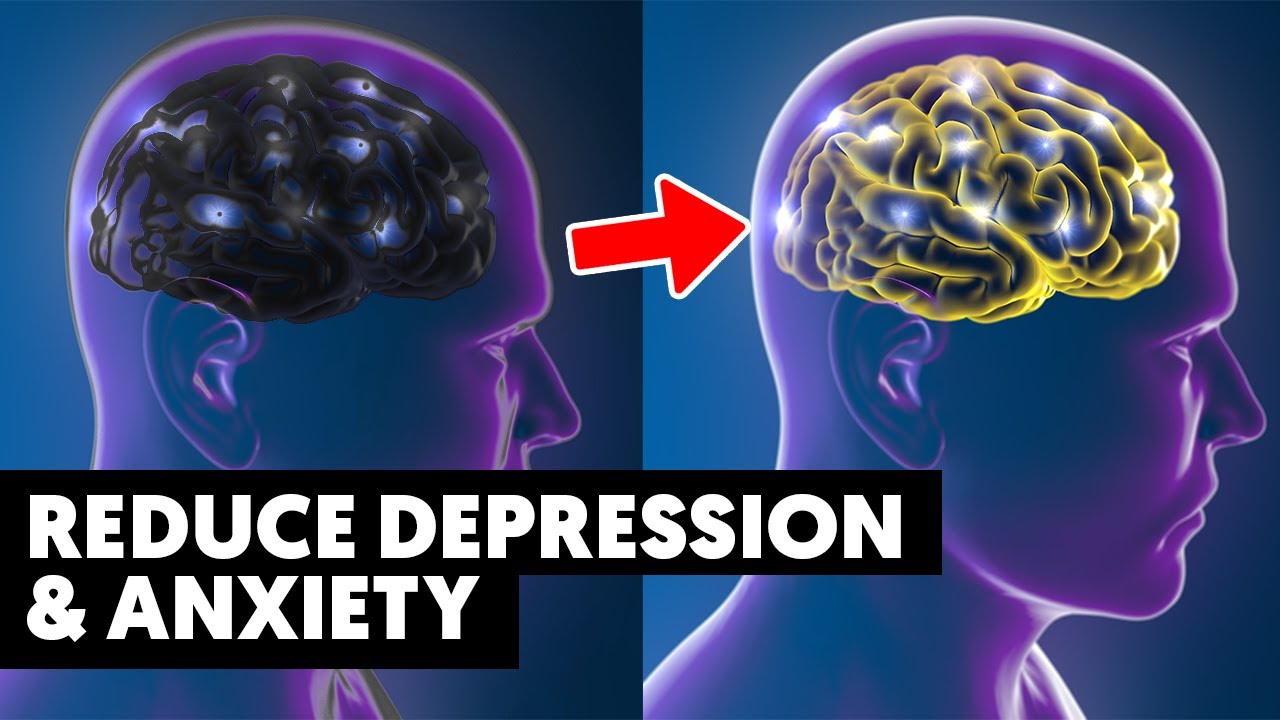7 Natural ways to reduce Depression and Anxiety
Life is practically about ups and downs.
It’s why people encounter a slump or feel blue from time to time.
It’s all part of the natural way of life.
However, what isn’t normal is when you’re feeling down for longer periods than usual.
If this frequently happens to you, you might be dealing with depression.
Although a common medical illness, depressions is a serious case that adversely impacts the way a person feels, thinks, and acts.
One of the primary symptoms of depression is anxiety.
Anxiety is among the most common mental health issues today.
Its symptoms include nervousness, agitation, chest pain, and a racing heart.
Today, we will give you a rundown on seven natural ways to reduce depression and anxiety.
1. Set goals
Establish goals for yourself. You can start with little things like ‘do a house chore, say washing dishes.’
Anything that you can accomplish will do.
Then give yourself credit for accomplishing that goal.
Move on to more complex goals as you start feeling better about praising yourself.
2. Pen your thoughts
Writing down whatever you’re feeling and thinking can make a difference in clearing up your head.
Get a notebook and a pen and write to your heart’s content.
Although not everyone likes journaling, it’s especially helpful to those suffering from depression and anxiety problems.
Putting your jumbled thoughts into paper lets you reread them, which may help you look reassess your situation and change your perspective.
3. Get enough sleep
Depression and anxiety can make it difficult to get enough shut-eye.
It’s important to get enough sleep, otherwise, your condition will get worse.
Get in a regular sleep habit and manage your sleep cycle to stabilize your energy levels.
Lack of sleep is bad, but oversleeping isn’t also good.
4. Exercise
Exercise is great at burning off the anxious vibe.
It also temporarily boosts your endorphins, making you feel good afterward.
Running a marathon isn’t necessary to help your depression and anxiety.
Just some walking a couple of times a week can already help.
Getting your body worked up also helps eliminate some negative thoughts.
5. Maintain a healthy diet
While there’s no magic diet for depression, eating healthy is a better idea.
Go for healthier foods like fruits, vegetables, and whole grains.
Foods with omega-3 fatty acids (e.g., tuna and salmon) and rich of folic acid (e.g., avocado and spinach) are said to help ease depression.
Cutting back your consumption of processed foods including sweets and excessive carbohydrates also promotes good mental health.
6. Try aromatherapy
Smelling soothing essential oils can help ease stress and anxiety.
Certain scents are more effective for some individuals than others.
Thus, you may consider experimenting with which option(s) works best for you.
Lavender is a widely used scent for aromatherapy as it helps treat insomnia.
According to studies, aromatherapy may reduce heart rate in the short-term, all the while help ease sleep problems in the long run.
7. Do something new
When you’re depressed, you’re in a humdrum routine.
Burying yourself deep into a rut won’t do you any good.
Instead, you should push yourself to try something entirely new.
Read a new book by the beach. Go to an art exhibit.
Volunteer at an animal shelter. Take a knitting class. Or anything.
Doing something new that forces our brain to release dopamine, which, by the way, is linked with learning, pleasure, and enjoyment.
Have any coping methods of your own you’d love to share? Let us know!
▶ Subscribe to the channel! – https://goo.gl/nJ8d6r
Royalty free Pictures from
www.pixabay.com
www.pexels.com
Royalty Free Music from
Audio Library – No Copyright Music



![[ID: Hx_A0iLhdr8] Youtube Automatic](https://bizimtube.com/wp-content/uploads/2021/03/id-hxa0ilhdr8-youtube-automatic-236x133.jpg)
![[ID: lp7w0UmpuIs] Youtube Automatic](https://bizimtube.com/wp-content/uploads/2021/03/id-lp7w0umpuis-youtube-automatic-236x133.jpg)
![[ID: s2-7T1TH-lY] Youtube Automatic](https://bizimtube.com/wp-content/uploads/2021/03/id-s2-7t1th-ly-youtube-automatic-236x133.jpg)
![[ID: b_lakC9M4UQ] Youtube Automatic](https://bizimtube.com/wp-content/uploads/2021/03/id-blakc9m4uq-youtube-automatic-236x133.jpg)
![[ID: r44yl6nPONs] Youtube Automatic](https://bizimtube.com/wp-content/uploads/2021/03/id-r44yl6npons-youtube-automatic-236x133.jpg)
![[ID: pAwto1YQjA8] Youtube Automatic](https://bizimtube.com/wp-content/uploads/2021/03/id-pawto1yqja8-youtube-automatic-236x133.jpg)
![[ID: XETG8azHiv4] Youtube Automatic](https://bizimtube.com/wp-content/uploads/2021/03/id-xetg8azhiv4-youtube-automatic-236x133.jpg)
![[ID: f3G_-S_2HUk] Youtube Automatic](https://bizimtube.com/wp-content/uploads/2021/03/id-f3g-s2huk-youtube-automatic-236x133.jpg)
![[ID: G8oWns54snA] Youtube Automatic](https://bizimtube.com/wp-content/uploads/2021/03/id-g8owns54sna-youtube-automatic-236x133.jpg)
![[ID: s0lIFXhu6aw] Youtube Automatic](https://bizimtube.com/wp-content/uploads/2021/03/id-s0lifxhu6aw-youtube-automatic-236x133.jpg)
![[ID: 4UTd2Ev8eYg] Youtube Automatic](https://bizimtube.com/wp-content/uploads/2021/03/id-4utd2ev8eyg-youtube-automatic-236x133.jpg)
![[ID: RKBGBjVJBxQ] Youtube Automatic](https://bizimtube.com/wp-content/uploads/2021/03/id-rkbgbjvjbxq-youtube-automatic-236x133.jpg)